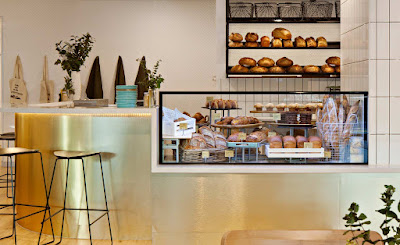In today's world, where sustainability is becoming increasingly important, many industries are striving to reduce their environmental footprint, and bakery businesses are no exception.
From sourcing ingredients to packaging, bakeries are finding innovative ways to operate more sustainably while still delighting customers with delicious treats.
Let's explore six ways Melbourne bakery businesses are embracing eco-friendly practices.
1. Sustainable Sourcing of Ingredients
One of the most significant steps bakery owners are taking towards sustainability is sourcing ingredients responsibly. Instead of opting for conventional ingredients produced with harmful chemicals, many bakeries are turning to organic, locally sourced, and seasonal ingredients. By supporting local farmers and choosing organic options, bakery owners not only reduce their carbon footprint but also contribute to the local economy.
Sourcing ingredients sustainably also involves considering the environmental impact of production methods. For example, bakery owners may choose to buy flour produced using regenerative farming practices or select dairy products from farms with high animal welfare standards. By prioritising sustainable sourcing, bakery businesses can ensure that their products are not only delicious but also produced with minimal harm to the environment.
2. Minimizing Food Waste
Food waste is a significant concern for bakery businesses, but many are implementing strategies to minimise it. From careful production planning to donating surplus goods to local charities, bakeries are finding creative ways to reduce waste. Some bakery owners are also repurposing unsold products into new treats or incorporating them into other menu items, ensuring that nothing goes to waste.
Reducing food waste not only benefits the environment but also helps bakery businesses save money. By minimising waste, bakery owners can lower their production costs and improve their bottom line. Additionally, by donating surplus food to those in need, bakery businesses can make a positive impact on their local community.
3. Energy-Efficient Practices
Energy consumption is another area where bakery owners are making eco-friendly changes. Many bakeries are investing in energy-efficient equipment, such as ovens and refrigerators, to reduce their energy usage. Additionally, some bakery owners are harnessing renewable energy sources like solar or wind power to reduce their environmental impact further.
In addition to investing in energy-efficient equipment, bakery owners are implementing practices to reduce energy waste. This may include turning off equipment when not in use, optimising production schedules to minimise energy usage, and conducting regular maintenance to ensure equipment operates efficiently. By prioritising energy efficiency, bakery Melbourne businesses can reduce their environmental footprint while also saving money on energy costs.
4. Compostable Packaging
Packaging is a significant concern for bakery businesses, as traditional packaging materials often contribute to environmental pollution. To address this issue, many bakeries are switching to compostable packaging made from materials like recycled paper or biodegradable plastics. By choosing compostable packaging, bakery owners can reduce their reliance on single-use plastics and minimise waste sent to landfills.
Compostable packaging not only benefits the environment but also appeals to eco-conscious consumers. Many customers appreciate bakery businesses that prioritise sustainability and are willing to support them by choosing products packaged in compostable materials. By making the switch to compostable packaging, bakery owners can attract environmentally conscious customers and differentiate themselves from competitors.
5. Water Conservation
Water is a precious resource, and bakery owners are taking steps to conserve it in their operations. From installing low-flow faucets to implementing water-saving techniques in production processes, bakeries are finding ways to reduce their water usage. Some bakery owners are also recycling water used in production for tasks like cleaning equipment, further minimising their environmental impact.
In addition to reducing water usage, bakery owners are also exploring alternative water sources. For example, some bakeries are harvesting rainwater for use in production processes or installing water filtration systems to reuse wastewater. By prioritising water conservation, bakery businesses can minimise their environmental footprint and contribute to the sustainable management of water resources.
6. Community Engagement and Education
Educating customers about sustainability and involving the community in eco-friendly initiatives is essential for bakery businesses. Many bakeries are hosting events, workshops, or tastings to raise awareness about sustainable practices and encourage customers to make environmentally conscious choices.
By engaging with their community and sharing their commitment to sustainability, bakery owners can inspire others to adopt eco-friendly habits.
Conclusion
Bakery businesses are embracing eco-friendly practices in various aspects of their operations, from sourcing ingredients to engaging with the community. By making sustainable choices, bakery Melbourne owners not only reduce their environmental footprint but also demonstrate their commitment to creating a better future for generations to come.
As consumers, we can support these efforts by choosing to patronise bakeries that prioritise sustainability and by making environmentally conscious choices in our own lives. Together, we can make a difference and create a more sustainable world for all.
When looking for a specialty cakes in Melbourne that embraces nature and Mother Earth, Cremorne Street Bakers is your go-to choice.
























